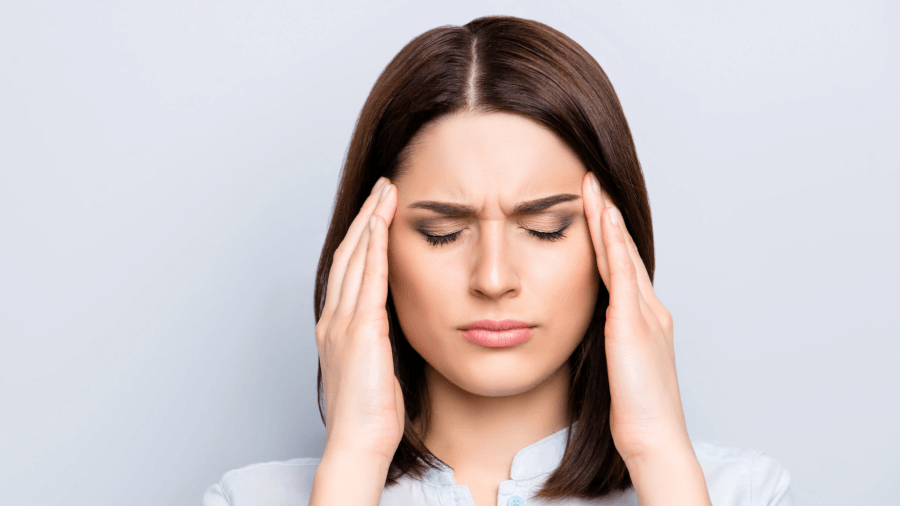Hormones are chemical messengers that play a pivotal role in regulating various bodily functions, from growth and metabolism to mood and reproduction. When these delicate hormonal symphonies go out of tune, it can lead to a condition known as hormonal imbalance. This disruptive state can affect individuals of all ages, genders, and backgrounds, impacting physical health, emotional well-being, and overall quality of life. We will dive into the complexities of hormonal imbalance, exploring its causes, signs, and holistic approaches to finding harmony within.
What is Hormonal Imbalance?
Hormonal imbalance occurs when there is either an excess or deficiency of specific hormones in the bloodstream, disrupting the delicate equilibrium required for optimal bodily function. Our endocrine system, which comprises glands like the pituitary, thyroid, adrenals, ovaries, and testes, is responsible for producing and regulating hormones. Stress, poor nutrition, environmental factors, certain medications, and underlying health conditions can all contribute to hormonal imbalances.
Common Signs and Symptoms
Hormonal imbalances can manifest in various ways, and the symptoms may vary depending on the specific hormones involved. Some common signs of hormonal imbalance include:
- Irregular Menstrual Cycles: For women, irregular or absent periods may be a sign of hormonal imbalance, often linked to issues with estrogen and progesterone levels.
- Unexplained Weight Changes: Fluctuations in weight, particularly unexplained weight gain or difficulty losing weight, can be attributed to hormonal imbalances affecting metabolism and appetite regulation.
- Mood Swings and Emotional Distress: Hormonal fluctuations can influence neurotransmitters in the brain, leading to mood swings, irritability, anxiety, or depression.
- Fatigue and Sleep Disturbances: Imbalances in cortisol (the stress hormone) and melatonin (the sleep hormone) can disrupt sleep patterns and lead to chronic fatigue.
- Skin Problems: Hormonal imbalances may contribute to acne breakouts, skin dryness, or excessive hair growth in unwanted areas.
- Hair Loss: Excess levels of androgens (male hormones) in women can lead to hair loss and thinning.
- Low Libido: Hormonal imbalances can dampen sexual desire and lead to sexual dysfunction.
Holistic Approaches to Hormonal Balance
Addressing hormonal imbalance involves a comprehensive approach that considers lifestyle, diet, stress management, and medical interventions when necessary:
- Balanced Diet: Consume a well-balanced diet rich in whole foods, fiber, healthy fats, and lean proteins. Minimize processed foods, sugar, and refined carbohydrates, which can contribute to hormonal fluctuations.
- Regular Exercise: Engage in regular physical activity to help regulate hormones, reduce stress, and support overall well-being.
- Stress Management: Practice relaxation techniques, mindfulness, or meditation to reduce stress levels and support hormonal balance.
- Sleep Hygiene: Prioritize quality sleep by maintaining a consistent sleep schedule, creating a calming bedtime routine, and ensuring a sleep-friendly environment.
- Avoid Endocrine Disruptors: Minimize exposure to chemicals and endocrine disruptors found in certain plastics, pesticides, and household products.
- Supportive Supplements: Consider incorporating supplements like omega-3 fatty acids, magnesium, and adaptogenic herbs to support hormonal health.
- Seek Professional Guidance: If you suspect a hormonal imbalance, consult with a healthcare provider or endocrinologist who can conduct appropriate tests and recommend personalized interventions.
Hormonal imbalance is a multifaceted condition that can have a profound impact on physical and emotional health. By adopting a holistic approach that encompasses lifestyle changes, stress management, and nutritional support, we can promote hormonal harmony and improve overall well-being. Remember that hormone balance is unique to each individual, and finding the right path to equilibrium may require patience and perseverance. If you suspect a hormonal imbalance, seek professional guidance to gain insights into your specific needs and chart a course toward reclaiming balance, vitality, and vitality in your life. Embrace the power of self-care and self-compassion as you embark on the journey of restoring harmony within.
